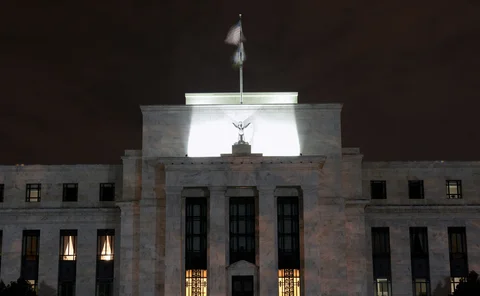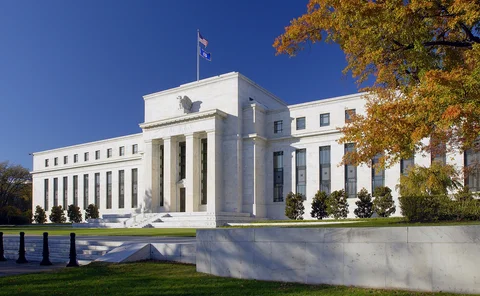CCAR
WHAT IS THIS? The Comprehensive Capital Analysis and Review (CCAR) is a stress test carried out by the US Federal Reserve. It aims to establish whether the largest banks have enough capital to cope with a severe economic shock, and vets their risk modelling practices – creating an annual cycle that has driven huge investments in staff and systems at many banks.
Regional banks prepare CECL proposal for FASB
Bank executive says FASB open to weighing concrete proposal, and banks scramble to make one
Not so DFAST: slim Mizuho avoids stress
Mizuho Americas has remained lean to head off CCAR, and, post-Crapo, it’s clear of DFAST, too
Improved credit loss estimates proposed for IFRS 9
New smoothing technique claims to overcome flaws in risk rating scales
New credit risk modelling approach touted to reduce CCAR bias
Academic aims to address gaps in existing LGD forecast method with two-equation fix
Banks ask Fed to delay CECL impact on stress testing
Fed asked not to implement CECL into CCAR until 2021
Fed stress tests: foreign banks lag US on capital estimates
On average, IHCs missed the Fed’s estimates of the amount their CET1 ratios would fall in the 2018 test cycle by 213bp, compared with 109bp by US lenders
Goldman, Morgan Stanley push for CCAR changes
Balance sheets will shrink in a crisis, not grow, trading houses argue
Banks call for revamped G-Sib surcharge
Fears surcharge will raise post-stress capital requirements under proposed new buffer
Regulatory arbitrage: a crime, or a warning?
It could be unwise to ignore disproportionate regulatory impacts on specific business lines
US banks more cramped by stress tests than global peers
Five out of six US dealers adjust capital based on stress scenarios
Tired of overshooting, BNY Mellon revamps stress test model
Capital distributions crimped by conservative CCAR estimates
CCAR ‘apocalypse’ leads to excess bank capital, says lobbyist
Head of new trade body says Fed should average capital requirements over multiple scenarios
Regulators bristle at slow progress on BCBS 239
Three out of 30 banks compliant with six months to go; talk of capital add-ons for laggards
Branching out: foreign banks seek shelter from Fed rules
Foreign banks stashing repo businesses within their branches, outside Fed’s full gaze
Citi and Wells Fargo wary of stress capital buffer
Recent CCAR tests point to higher CET1 requirements
Stress-test trading losses out of sync with banks’ market risk
Trading and counterparty losses triple those implied by banks’ market RWAs
CCAR losses concentrated at four US banks
BAML, Citi, JP Morgan and Wells Fargo account for more than half of total CCAR projected losses
Foreign bank IHCs shed US assets in 2017
Barclays, Credit Suisse and Deutsche Bank shrunk balance sheets by $166 billion
CCAR projected losses top half a trillion
Trading and counterparty losses made up 20% of total predicted losses across participants
Foreign banks outperform US peers on CCAR
IHCs report 11.1% average post-stress capital ratio
Deutsche Bank fails CCAR; Goldman and Morgan Stanley scrape by
DB USA hit with qualitative fail, while Goldman and Morgan Stanley face dividend and buyback freeze
Fed stress tests stretch State Street, Goldman, Morgan Stanley
State Street worst performer among complex firms on capital; Goldman and Morgan Stanley on SLR
CCAR winners and losers 2012–17
American Express came off worst under CCAR total capital ratio measure among large and complex firms three years out of six
New US buffer triggers fresh focus on CCAR transparency
Banks fear capital volatility and may also push for changes to US G-Sib surcharge












